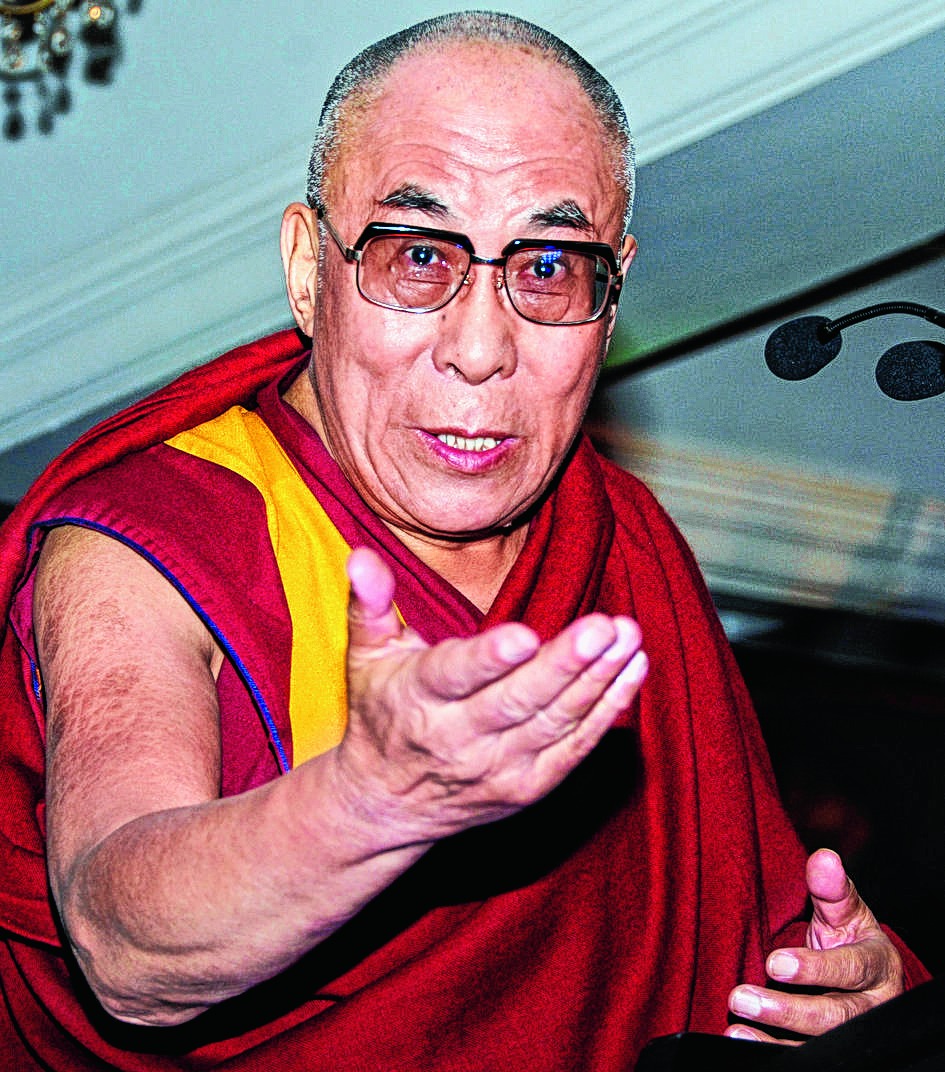
Guwahati, March 30: The Assamese translation of the Dalai Lama's memoirs titled Mor Desh Aru Mor Manuh (My Land and My People), which will be released by him on April 2 here, has stirred up a controversy.
The family of Sahitya Akademi awardee late Basundhara Saikia today contested the claim made by the publishers of the Assamese version, Lawyer's Book Stall, that it is the first Assamese translation of any book written by the Tibetan spiritual leader.
Basundhara's son Gautam told The Telegraph today that his mother had translated the Nobel Laureate's autobiography a couple of years after it was published in 1962. Hence, the book published by Law-yer's Book Stall is not the first translation of the autobiography into Assamese, he said.
"The Assamese translation by my mother titled Swadesh Aru Swajati was published as a series in Asom Batori, a now-defunct Assamese newspaper, and it also finds mention in the Sahitya Akademi citation presented to her," he said.
Basundhara, who passed away on April 10, 2002, was presented the Sahitya Akademi award for her Assamese translation of Datta by Saratchandra Chattopadhyay in 1994.
"Srimati Saikia knows Assamese, Bengali and English and has a large number of translations to her credit published in periodicals within and outside the state. Her major translated works include the Dalai Lama's My Land and My People and A.B. Karnik's Kashmir Princess," the citation reads.
Her son accused the publishers of presenting wrong facts and misleading the people. He said he had taken up the matter with Lawyer's Book Stall but failed to get a favourable response.
When contacted, Lawyer's Book Stall proprietor Bhaskar Dutta-Baruah said Mor Desh Aru Mor Manuh is the first authorised Assamese translation of the Dalai Lama's autobiography.
"We have duly taken permission from the Dalai Lama to translate his memoirs and he had also written the foreword to the Assamese translation," he said.
Dutta-Baruah said Gautam had met him but he could not produce a copy of the translation of the book by his mother or permission from the Dalai Lama to translate the book. "Moreover, he said the translation was published in a newspaper and not in the form of a book," he said.
"She may have translated it but it was an unauthorised work since she had not taken the permission of the Dalai Lama. Therefore, ours is definitely the first authorised translation of the memoirs of His Holiness," he added.
Dutta-Baruah said besides releasing the Assamese version of the book, the Dalai Lama will also deliver a talk on Ancient Indian Knowledge in Modern Times at Gauhati University's BKB auditorium at a programme jointly organised by the publisher and K.K. Handiqui State Open University.
The Dalai Lama will also give a public talk on A Human Approach to World Peace at the ITA Centre for Performing Arts on Saturday and will attend the Namami Brahmaputra festival on Sunday.
Ulfa (Independent) had triggered a controversy by asking the Dalai Lama to refrain from making anti-China comments during his visit to Assam.
The Bharat Tibet Sahyog Manch, an all-India Tibet support group, today asked Ulfa (I) to stop behaving like a stooge of China and refrain from speaking on behalf of China.
National secretary of the Manch, Rajneesh Tyagi, said the Dalai Lama will be warmly received by the people of Assam and warned China not to issue statements regarding his movements within India.











